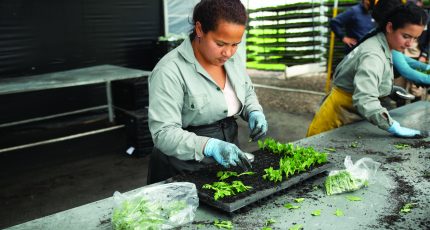Resources
To further our mission to mobilize the global business community to connect refugees to work, the Tent Partnership for Refugees invests in new research, guidebooks, and other resources that make it easier for companies to hire, train, and mentor refugees. Tent’s research makes the business case for companies to support refugees, and our guidebooks offer advice and best practices to help companies start refugee hiring initiatives.

Guía para la contratación laboral de personas solicitantes de asilo, refugiadas y migrantes venezolanas en Colombia

Guide Emploi Réfugiés France – Une ressource sur l’emploi des personnes réfugiées à destination des entreprises françaises

UK Employers’ Guide to Hiring Refugees

Guía para la contratación de personas refugiadas y migrantes en Perú

Canada Employers’ Guide to Hiring Refugees

 Tent Named to TIME100 Most Influential Companies List
Tent Named to TIME100 Most Influential Companies List